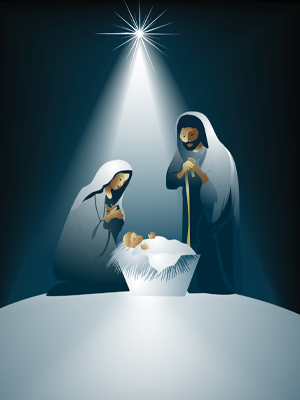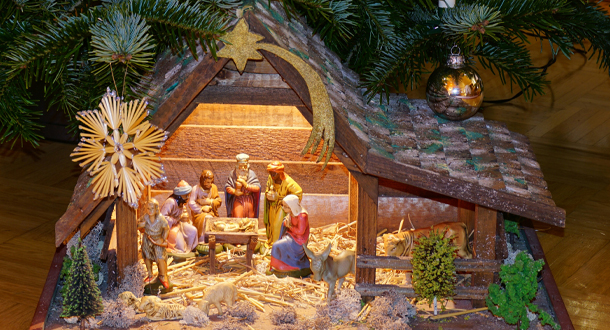Editors’ note: It is with great sadness that we mourn the death of our Passionist brother, Father Don Senior, CP, who died on November 8, 2022. We have published Father Don’s Scripture reflections over the past several years. As we look for a new reflection contributor, we will continue to repost Father Don’s past reflections on the first day of the month.
Solemnity of the Blessed Virgin Mary, the Mother of God
Scripture:
Numbers 6:22-27
Galatians 4:4-7
Luke 2:16-21
Reflection:

Over the years this feast that marks the beginning of another calendar year has had different designations: the Circumcision, a day of prayer for World Peace, and now in later years a celebration of Mary as “the Mother of God.’
In a certain way all three designations point to the mystery of the Incarnation. The ritual of circumcision is a sign that Jesus of Nazareth was a Jew, marked with this traditional sign of his belonging to God’s people. Jesus was not a “generic” human being but was born in a particular time and place in history.
And praying for peace also reflects the deep longings that all humanity has for the cessation of violence and the blessing of authentic peace. “Peace” refers not only to armed conflict (of which there are still hotspots throughout the world, for example, the raging civil war in Ethiopia and the massing of Russian troops on the border of Ukraine—to mention only two), but also the violence that marks our city streets and the verbal violence and conflict that seems to characterize a lot of our public life and discourse today.
But honoring of Mary as “the Mother of God” is perhaps the most profound assertion of the Incarnation. Mary was officially declared theotokos—literally in Greek, “God bearer”—at the Council of Ephesus in 431. In one startling declaration, the church affirmed what we can hardly imagine—that God so loved our world that through his Son Jesus, the divine and transcendent God has completely embraced our human condition.
Recent theologians have noted that the incarnation did not begin only with the advent of Jesus but was already anticipated in the act of creation itself when God, out of love, fashioned the world to reflect the divine beauty and order. The creation of the human person is the crowning achievement of God’s creation and is made “in the image and likeness of God”—a foretaste of the Incarnation itself. And God’s adoption of the people Israel and his abiding providence in human history are all expressions of God’s enduring embrace of humanity.
The second reading today from Paul’s Letter to the Galatian affirms this mystery in blunt phrases: “When the fullness of time had come, God sent his Son, born of a woman, born under the law…so that we might receive adoption as sons [and daughters].” The result, Paul notes, is that we are able to cry out to God in affectionate terms as “Abba, Father,” that, is not as “slaves” but as “sons and daughters.”
Jesus’ conception in the womb of Mary and her giving birth to her Son seals forever the incredible mystery of God’s love for us as human beings and for our world of which we are a part. That is the reassuring teaching of our Christian faith we can take to heart as we begin a New Year, come what may.
Fr. Donald Senior, C.P. was President Emeritus and Professor of New Testament at Catholic Theological Union. Until his death, he lived at the Passionist residence in the Hyde Park neighborhood of Chicago.







